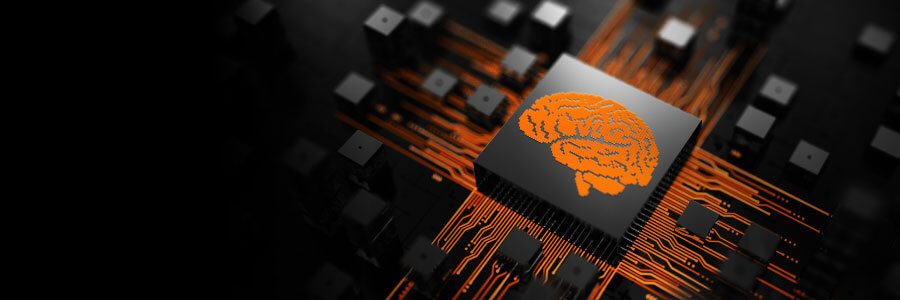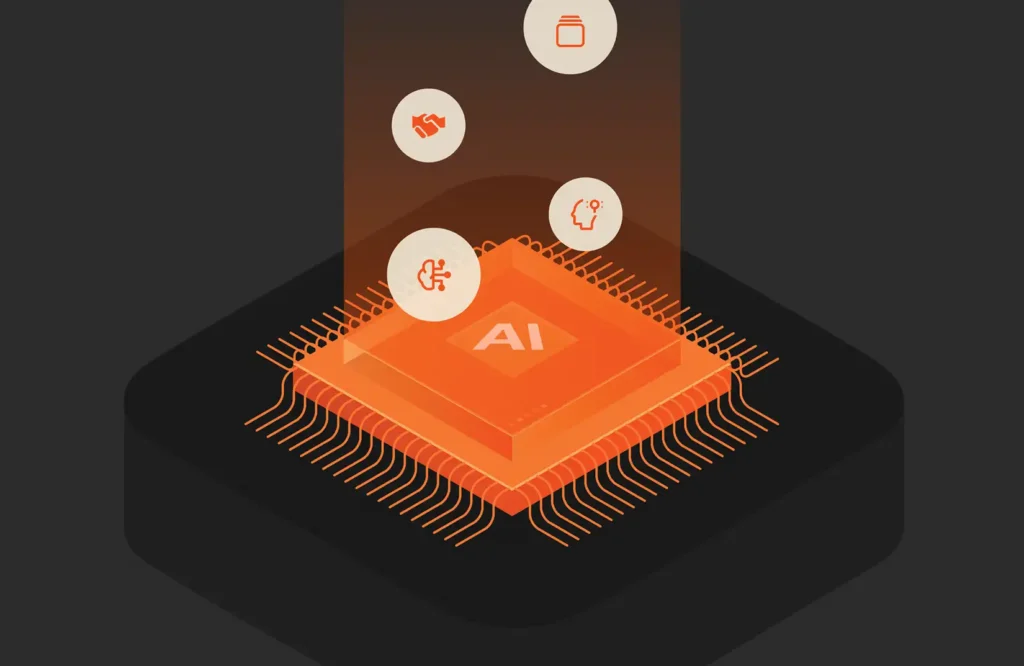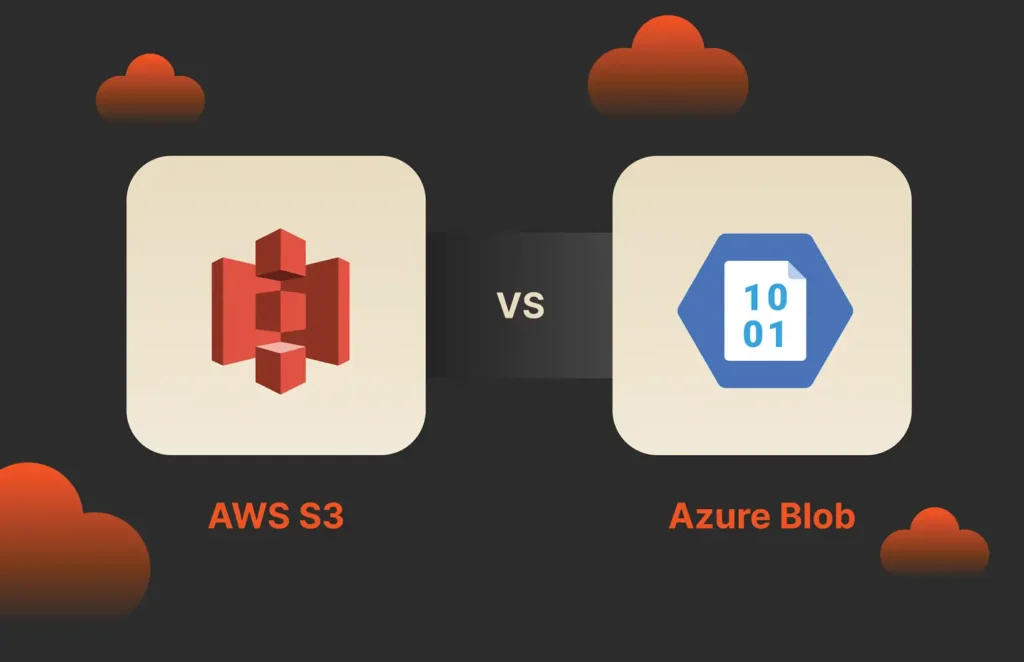It’s a fact that artificial intelligence (AI) is revolutionizing the healthcare industry by transforming patient care, enabling groundbreaking research and streamlining operations. AI’s ability to process vast amounts of data at incredible speed is proving invaluable in addressing some of healthcare’s biggest challenges, from improving diagnosis accuracy to accelerating innovative drug discovery and development.
Where is AI use making a big impact on healthcare or showing great promise? Here are five areas, along with insight into why healthcare organizations need advanced storage solutions to help them unlock the full potential of their data, with speed and at scale, so they can advance medicine and improve patient outcomes in this new era of AI-powered healthcare.
1. Enhanced Diagnostics and Early Detection
One of the most significant ways AI is improving healthcare is through enhanced diagnostics and early detection of diseases. AI algorithms are being trained to detect patterns in medical imaging—such as X-rays, CT scans and MRIs—that the human eye might miss. This is particularly beneficial in identifying signs of emerging cancer, where early diagnosis can be lifesaving.
For example, researchers at MIT have developed an AI-powered system that can predict the onset of breast cancer up to four years in advance by analyzing mammograms, offering hope for earlier intervention and better outcomes. And research shows that AI helps radiologists decrease false positive rates by 37.3%, highlighting how the technology can improve the accuracy, consistency and efficiency of breast ultrasound diagnosis.
Advanced data storage systems like all-flash and cloud storage have a crucial role to play in enabling the use of AI for enhanced diagnostics and early detection. High-capacity, high-speed storage lets healthcare providers efficiently store, retrieve and process medical imaging data. These solutions also offer rapid access to historical imaging data for continuous model training and improving diagnostic accuracy.
Additionally, scalable storage systems facilitate secure data sharing between departments and specialists, ensuring collaboration without sacrificing speed or data fidelity.
Learn about seven storage considerations for digital pathology.
2. Faster Drug Discovery and Development
New drug discovery and development is a notoriously long and resource-intensive process, often taking many years and costing billions of dollars. But AI, with its ability to analyze huge datasets of molecular information, clinical trials and patient data, is helping researchers to identify potential drug candidates much faster than with traditional methods.
Companies around the globe are ramping up their use of AI for new drug design — and attracting major funding to support and advance their efforts, too. According to a roundup of recent industry statistics, 80% of professionals in the pharmaceutical and life sciences fields now use AI for drug discovery, and AI technology is helping to shorten the discovery process from five to six years to just one year.
AI for drug discovery requires immense computational power and storage capacity. High-performance storage solutions with low latency support the complex data retrieval and storage needs associated with this process, enabling AI to rapidly analyze, test and predict interactions of potential drug compounds.
Storage solutions that facilitate parallel processing and provide easy access to vast molecular databases enable researchers to reduce development timelines and accelerate the transition from the discovery phase to clinical testing. Modern hybrid cloud storage solutions can also help researchers speed up drug innovation by accelerating data processing, supporting AI-driven analytics, and ensuring compliance with relevant data regulations.
Drug researchers at pharma and biotech companies can use the AI platform NVIDIA BioNeMo with a Pure Storage® FlashBlade//S500 system to support AI-driven drug discovery and other computational tasks. Find out more about this scalable AI solution.
3. Hyper-Personalized Treatments, Services and Communication
Hyper-personalization is a relatively new trend in healthcare that’s rapidly advancing due to AI, data analytics and genomics becoming more integrated into medical practices. AI can process and analyze vast amounts of healthcare data from diverse sources, from electronic health records (EHRs) to wearable devices, and equip healthcare providers with insight into how to customize treatments and experiences for patients based on their unique characteristics, including their medical history and genetics.
Hyper-personalization can help enhance patient engagement, optimize preventive care and promote overall wellness. According to Boston Consulting Group, healthcare providers that prioritize personalization in patient interactions have seen significant improvements in customer satisfaction as well as reductions in the length of hospital stays and 30-day readmission rates.
Personalized treatment plans require the aggregation of diverse datasets, including medical records, genetic information and lifestyle data. To manage this, healthcare organizations need storage solutions capable of organizing and retrieving complex, multidimensional data. With high-performance storage that supports fast data access, healthcare providers can retrieve and apply treatment recommendations immediately, allowing for timely, individualized care.
The right cloud-based EHR storage can provide huge advantages in data accessibility, security and cost savings. Learn more.
4. Virtual Health Assistants and Telemedicine
AI-powered telemedicine platforms and virtual health assistants are changing the way healthcare is delivered—and making care more accessible, especially to people in underserved or remote areas.
Telemedicine platforms proved to be invaluable during the COVID-19 pandemic by helping doctors connect with patients virtually when in-person visits were restricted. Increasingly, AI virtual health assistants are being integrated into these platforms to help streamline patient interactions by handling tasks like appointment scheduling, answering common health questions, and symptom triage.
These assistants enhance patient engagement and free healthcare providers from routine administrative tasks, improving efficiency and patient access to care. They can also assist in chronic disease management by monitoring patients’ vital signs remotely and alerting healthcare providers to any concerning changes. The demand for efficient, personalized healthcare services is driving growth in the global market for virtual health assistant technology, which is expected to hit $5.9 billion by 2033.
AI-powered telemedicine platforms and virtual health assistants rely heavily on data storage to access patient records, handle real-time data like vital signs and support video conferencing. High-speed, low-latency storage systems ensure data can be streamed and updated in real time, allowing AI to provide immediate responses and adjust recommendations as patient information changes. Secure data storage systems are also essential to protect sensitive patient data in virtual and remote healthcare settings.
Watch our webinar to discover how Pure Storage is helping to transform healthcare provisioning across the globe.
5. Workflow Optimization and Streamlined Operations
The use of AI in healthcare is not only enhancing research and development and patient care. It’s also helping hospitals and healthcare systems to become more efficient through workflow optimization. A survey by Accenture found that AI applications in healthcare administration could save U.S. healthcare providers up to $150 billion annually by 2026, primarily through improved efficiencies and reduced time spent on administrative tasks.
With centralized, high-speed storage, healthcare organizations can continuously feed AI-driven workflow optimization tools the data they need to function smoothly and streamline processes from scheduling to patient intake to billing. And by automating routine tasks and reducing bottlenecks, they can focus their human resources more on patient care, further reducing costs and increasing productivity.
Learn about another tool that helps organizations in the healthcare industry lower operational costs and risks: Pure Bare Metal as-a-Service.
Healthcare organizations need AI-ready infrastructure to make the most of AI
These are just some examples of how AI is transforming healthcare. To support their ambitions to drive innovation with AI technology, healthcare organizations must invest not only in advanced AI and analytics tools but also in AI-ready infrastructure designed to support and scale with them. Only with the right combination of data storage, computational power and integration capabilities can they manage vast amounts of healthcare data efficiently while also ensuring data security and regulatory compliance.
Pure Storage is redefining the healthcare data storage experience with solutions that support healthcare organizations’ work with AI and advanced analytics tools to transform their data into valuable insights that elevate patient care. Find out more about our healthcare industry solutions.

Real-world Organizations Gaining ROI from AI
Written By:







